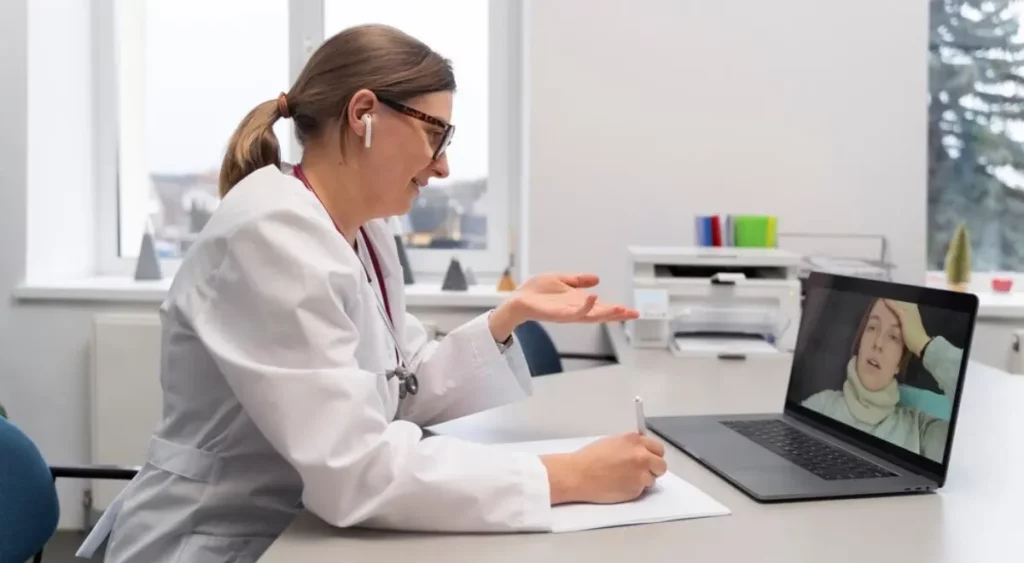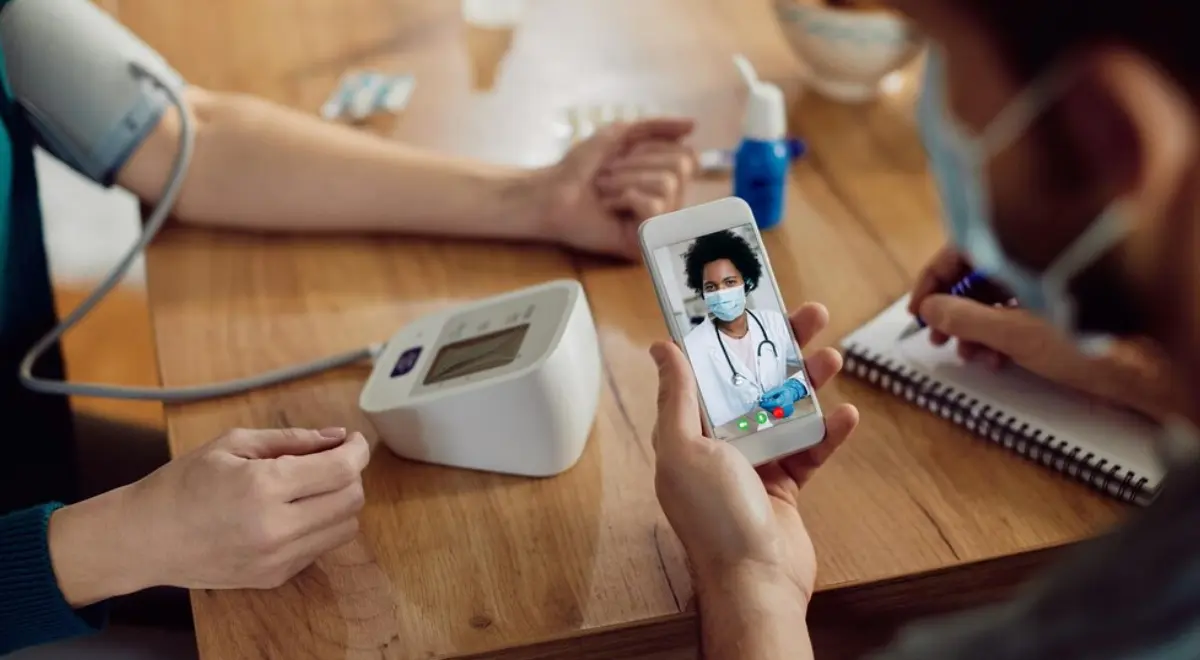Leveraging RPM to Promote Preventive Care during Winter Months

Want to keep health issues at bay this winter? If yes, preventive health care is the key. With the adoption of remote monitoring technology, preventive care is becoming the new normal and helps lower medical costs and results in quick diagnosis of an underlying ailment.
Remote monitoring technologies like telehealth and Remote Patient Monitoring (RPM) have considerably enhanced the quality of healthcare services delivered at the comfort of a patient’s home. It not only benefits patients but also helps providers in saving both time and resources spent on patient care at an in-clinic facility.
Table of Contents
ToggleRole of RPM in Preventive Care
After the COVID-19 pandemic, the need for virtual care has increased and both patients and providers are relying on it like never before. There are several types of remote care technologies that are offering reliable disease management and preventive care services for optimal health outcomes.
RPM is a form of healthcare delivery model that uses telehealth technology to facilitate communication between clinicians and patients and collect patient health data outside of in-patient clinical settings. This helps in closing the current patient-provider communication gap and boosts the engagement rate.
Healthcare providers believe that they can considerably improve patient health while reducing the number of doctor visits. The majority of healthcare organizations using remote care technologies have confirmed that they witnessed patient satisfaction and data efficiency after implementing an RPM system at their facility.
Benefits of Remote Patient Monitoring for Preventive Care
When it comes to preventive care, RPM offers a number of benefits that go beyond just regular monitoring and timely interventions. Some of the common ones include:
- Increased Connectivity: Before the onset of remote patient monitoring, patient-doctor interaction was only limited to in-person appointments. However, with RPM technology, preventive care has advanced significantly. Since doctors and patients can communicate freely at any time of the day via a digital health platform that tracks patient’s vitals via remote monitoring devices connected to the RPM platform it has greatly prevented the onset of ill-health conditions and improved healthcare management.
- Chronic Care Management: Chronic conditions require better preventive care and continuous monitoring to avoid emergency hospitalizations and readmissions. RPM enables consistent and regular monitoring of patients, as opposed to periodic check-ups. This plays a significant role in preventive care and allows close monitoring of chronic diseases and identifying any abnormalities in patient’s health data before the condition deteriorates.
- Easy Accessibility: Remote patient monitoring makes healthcare easy and effortless. With an over the cloud platform that facilitates virtual patient provider communication, patient data and medical records can be accessed easily, thereby avoiding the need of going through paperwork and patient files. With EHR integration capability, many advanced healthcare platforms like HealthArc can swiftly connect to an existing healthcare system for greater functionality and effective preventive care.
- Patient Empowerment: When a preventive healthcare application or RPM software is equipped with the necessary tools and technology to track the health vitals, and patients can take responsibility for monitoring their own health. Multiple remote patient monitoring devices, such as blood pressure monitors, weight scales, pulse oximeters and glucometers can be used for self-monitoring.
- Appointment Scheduling: Patients can make appointments directly using the mobile healthcare app, rather than telephoning the team available at a healthcare organization. Majority of RPM software allows patient appointment functionality that go through a set of automated stages to schedule an appointment without human intervention.
- Medical Data Records: Healthcare institutions understand the complexity involved in obtaining medical information from patients. Remote patient monitoring for preventative care enables the sharing of health-related data, which is in automated form and made available to all EHR’s connected with RPM system.
- Appointment Reminders: Appointment reminders are a valuable preventive healthcare tool that ensures patients don’t end up forgetting their virtual appointments. This removes a significant amount of repetitive administrative work and lowers the likelihood of no-shows. An RPM platform sends the patient an automated reminder based on the last appointment booking information submitted.
- Medication Reminders: Irregularities in getting yourself assessed by a healthcare provider often leads to medication delays and health complications. By staying in sync with their medical appointments and taking the prescribed medications on time, patients can experience better health outcomes.
- Reduced Healthcare Expenses: RPM plays a critical role in lowering significant costs for healthcare organizations and patients. Patients can keep manage their health and avoid hospitalizations by taking their medications on time, reporting their health data and scheduling regular appointments. Similarly, healthcare organizations can save money on administrative paperwork and physical visits.
- Reduced Administrative Burden: Paperwork, appointment follow-ups, patient data administration, and other responsibilities necessitate the hiring of management personnel by a healthcare company. But, all of these operations can easily be carried out using smart RPM technology. These automated processes can reduce administrative burden.
Conclusion
Remote patient monitoring for preventive care is empowered to offer quality healthcare services from the comfort of home. Increased security and regulated compliance have mitigated the risks and involved in using these technologies.
HealthArc is a trusted advanced healthcare platform helps practices connect to their patients and offers seamless integration with all leading EHRs through HL7 and FHIR capabilities. Healthcare providers can conveniently communicate with patients via audio, video calls, and SMS to make timely interventions.
Schedule a free demo today or call us at (201) 885 5571 to find out how our digital health platform can help you promote preventive care and enhance care coordination.
Most recent blogs
Categories
- Advanced Primary Care Management
- Behavioral Health Integration
- Cellular Remote Patient Monitoring
- Chronic Care Management
- Chronic Care Management Billing
- Chronic Care Management CPT Codes
- Chronic Care Management Program
- Chronic Care Management Software
- Digital Health Platform
- Principal Care Management
- Principal Care Management CPT Codes
- Remote Care Programs
- Remote Monitoring Devices
- Remote Patient Care
- Remote Patient Monitoring
- Remote Patient Monitoring Billing
- Remote Patient Monitoring CPT Codes
- Remote Patient Monitoring Devices
- Remote Patient Software
- Remote Therapeutic Monitoring
- Remote Therapeutic Monitoring Billing
- Remote Therapeutic Monitoring CPT Codes
- Telemedicine & RPM
- Transitional Care Management
- Transitional Care Management Billing
- Transitional Care Management CPT Codes
Related Posts
- February 14, 2025 | Read Time: 4 mins
Monitoring Post-Surgical Recovery With RPM Systems
- February 10, 2025 | Read Time: 5 mins
RPM Tools & Strategies for Chronic Pain Management
- February 7, 2025 | Read Time: 4 mins






